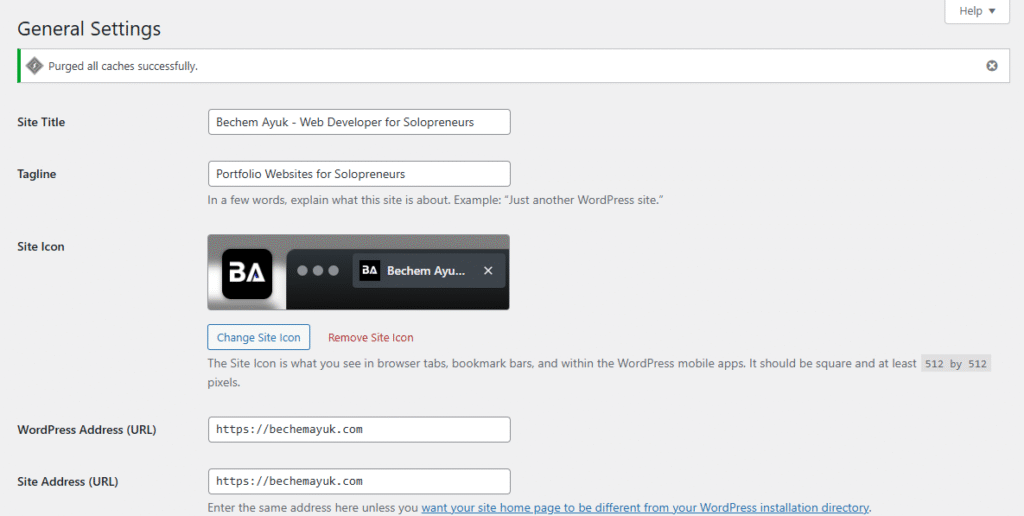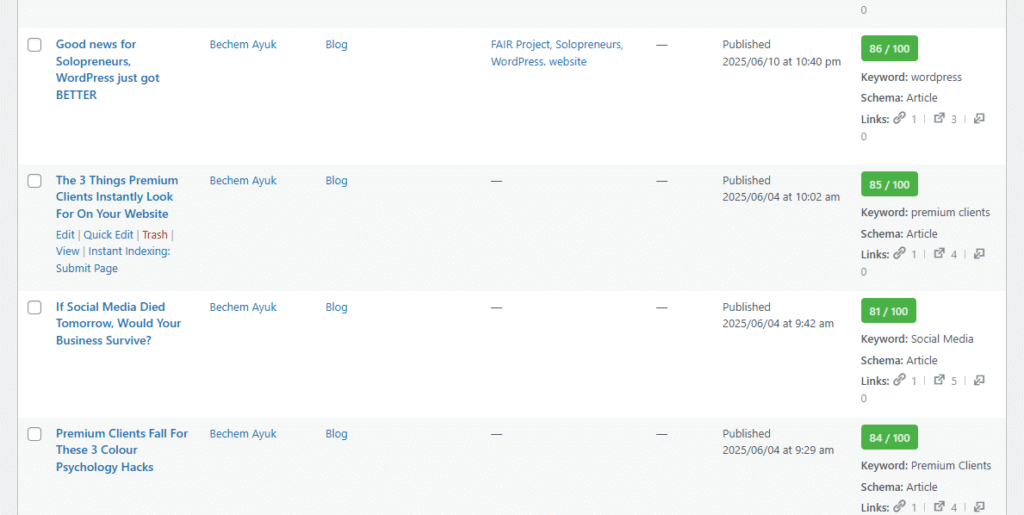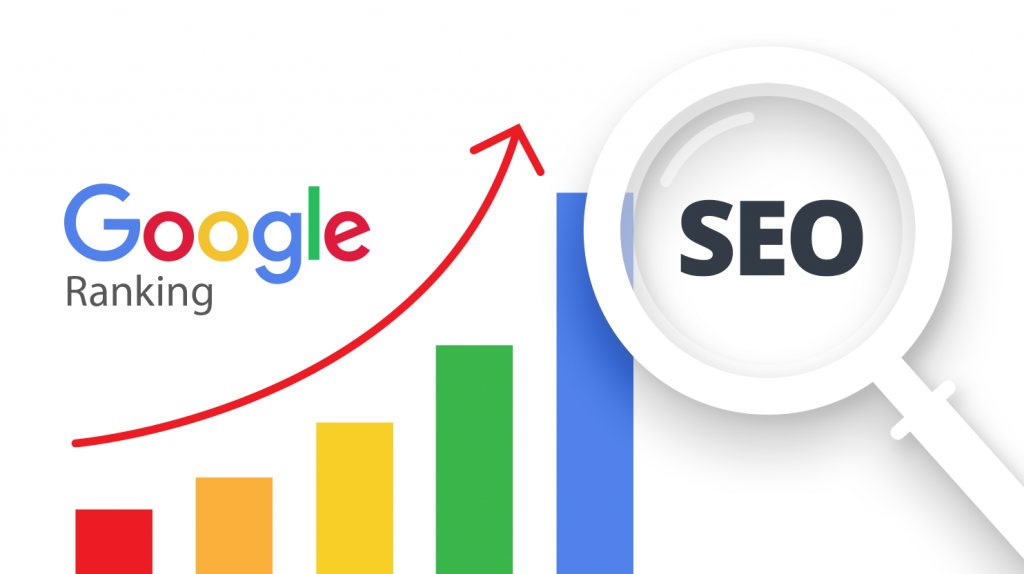Best SEO Practices for Solopreneurs to Rank High on Google
Earlier this week, I started ranking on Google’s first page for “web developer for solopreneurs”.

No ads. No big team. No agency. Just me figuring things out as I went along.
I’m not some SEO expert like Parth Shah SEO or anything. I don’t have a massive following or years of experience gaming Google’s algorithm.
But I did manage to get my website showing up when my ideal clients are actually looking for someone like me.
Here’s exactly what worked and what didn’t.
Why This Matters for Solopreneurs
As solopreneurs, we don’t have big marketing budgets. We’re not trying to dominate the internet.
We just want the right people to find us when they’re already searching for someone like us. That’s what Google ranking gives you. Visibility where it counts.
I didn’t expect to rank this soon, but I’m glad I did. And now that I understand why, I want to help other solopreneurs do the same.
What I Did
Let me walk you through what actually moved the needle, not what I thought would work.
1. I Added the Right Phrase to My Website Title
This was probably the biggest single change I made.
I changed my site title from something generic like “Bechem Ayuk – Web Developer” to “Bechem Ayuk – Web Developer for Solopreneurs”.

Why did this work? Because it matched exactly what people were typing into Google. When someone searches “web developer for solopreneurs”, Google sees that exact phrase in my title and thinks “Oh, this site is probably relevant”.
It sounds almost too simple, but that’s because it is simple. I wasn’t trying to be clever or creative. I just used the words my ideal clients actually use when they’re looking for help.
This can be done on every good web builder. For those using WordPress, go to ‘General Settings’ then you’ll see ‘Site Title’. Change it and you’re good to go.
2. I Started Writing SEO-Optimized Content
This is where most people get it wrong. They think SEO content means stuffing keywords into boring articles that nobody wants to read.
That’s not what I did.
I wrote articles that my ideal clients would actually find useful. Stuff like 3 Amazing Tech Tools Solopreneurs Shouldn’t Build Their Website Without and The 3 Things Premium Clients Instantly Look For On Your Website.
I made sure to include the phrases people were searching for. Not in a weird, robotic way. Just naturally, the way you’d talk about these topics.
For example, instead of writing about “website optimization”, I’d write about “making your website load faster for small businesses”. Same topic, but using language real people use.
The SEO Tool That Actually Helped
I use RankMath SEO on my WordPress website, and honestly, it made a huge difference.
This plugin helps me optimize each article without getting too technical about it. It shows me things like:
- Whether I’m using power words in my titles (words that make people want to click)
- If I have enough internal links to other pages on my website
- Whether I’m linking to authoritative external sources
- How readable my content is
Thanks to following RankMath’s suggestions, my articles consistently score 80+ on their SEO rating.

But the real benefit isn’t even the score. It’s that the plugin teaches you good habits without requiring you to become an SEO expert.
The tool basically holds your hand and says “Hey, maybe add a link here” or “This title could be stronger”. It’s like having an SEO consultant built into your website.
More Best Practices to Follow
1. Write for People First, Then Tweak for Google
I write articles that I’d actually want to read if I were looking for this information. Then I go back and make small adjustments to help Google understand what the article is about.
The content has to be genuinely useful. If someone reads it and thinks “This was helpful”, then I’ve done my job. The SEO stuff is just making sure Google can find it and understand it.
2. Keep Your Website Fast and Clean
I will never stop talking about how important it is to make your website fast. It’s so simple that it often gets overlooked.
I think having a slow website is low-key disrespectful to your visitors.
Nobody wants to wait 10 seconds for your website to load. I use a simple, fast WordPress theme and compress my images. Nothing fancy, just basic good practices.
Google cares about this stuff because users care about it. Slow websites get abandoned, so Google doesn’t want to recommend them.
3. Don’t Keyword Stuff
I don’t try to cram my target keywords into every paragraph. That just makes your writing sound weird and robotic.
Instead, I just speak the language of my audience. If you’re writing for solopreneurs, use the words solopreneurs use. If you’re writing for restaurant owners, use restaurant language.
Your keywords should feel natural because they are natural.
Why This Works for Solopreneurs
The beautiful thing about being a solopreneur is that you don’t need massive traffic to make a living. You need the right traffic.
If I get 1000 visitors from people searching “web developer for solopreneurs”, that’s way more valuable than 10,000 random visitors who aren’t looking for what I offer.
And you don’t need to compete with huge companies for generic terms. You can own very specific niches that bigger companies ignore because they’re “too small”.
“Web developer” is competitive. “Web developer for solopreneurs” is way easier to rank for, and the people searching for it are exactly who I want to work with.
Anyone Can Do This
SEO isn’t some secret art that only experts can master. It’s just alignment.
You’re aligning your message with what real people are already looking for. You’re using their language. You’re answering their questions. You’re being helpful in a way that Google can understand and recommend.
If you’re a solopreneur, you don’t need to go viral. You don’t need thousands of followers. You just need to be visible where it matters, when your ideal clients are actively looking for someone like you.
The internet is huge, but your perfect clients are out there searching for exactly what you offer. Your job is just to make it easy for them to find you.
And honestly? That’s way easier than it sounds.
SEO is just good communication. Speak your clients’ language, and Google will help them find you.
Thank you so much for reading. If you liked this, please share so more solopreneurs can see it.
Also, visit my store to get valuable resources on everything you need to know to build your solopreneur website. VISIT MY STORE
Or if you’d rather skip the tech headache,
If you’re rading this on my website, subscribe to my newsletter to receive educational articles like this directly in your inbox every week. SUBSCRIBE NOW





